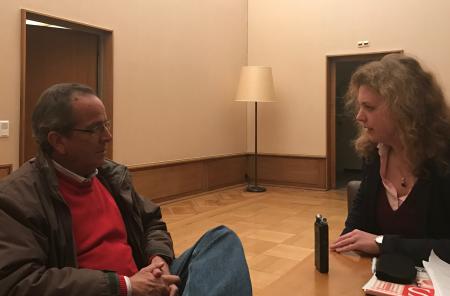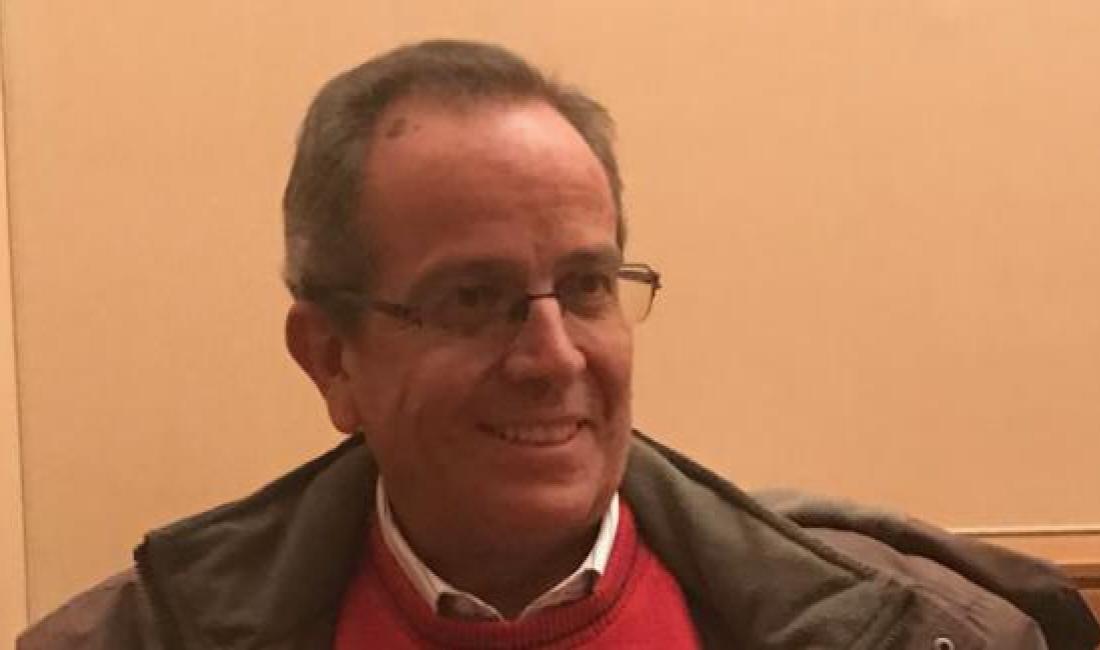On Sunday 19 February 2017, Ecuador’s 12 million eligible people faced a super election day: Beyond electing a new parliament and a new President, they could also decide on a plebiscite that President Rafael Correa had triggered. Up for vote was the question whether elected politicians or state officials should be allowed to have financial assets in tax havens. The final result: 55 per cent of voters opted for the reform at a turnout of 20 per cent.
Ahead of the vote we interviewed Alberto Acosta Espinosa, formerly a close friend of President Correa and Minister for Energy in 2007.
Note: Information on Ecuador by the Navigator to Direct Democracy Factsheet.
Dieses Interview gibt es auch auf Deutsch hier
Why does President Correa hold this plebiscite?
Well, originally this is a good idea: Politicians and officials who have moved their money to tax havens should not rule a country. It is a bad sign of behaviour; it shows that they lack confidence in their country. However, it is a valid question why Correa decided to go for a plebiscite as in any case, the Parliament will have to adopt a legislative proposal. President Correa’s political party, Alianza País, has more than 100 of the 137 seats in the Parliament. Hence, he could have realised this reform without a plebiscite by just bringing in this law proposal.
How much was the public informed about the popular vote?
Very little. For a long time you could hardly find any information on the website of the National Electoral Council. For the first time I heard about the vote on 1st February while being in a taxi. That was just a very brief radio ad, the plebiscite can hardly be noticed in the public.
How do you explain this lack of information?
Well, reality got into play. Just imagine, there is a prosecutor in Ecuador who has his assets in a tax haven. And the prosecutor is a part of the President’s wider circle. So he does not necessarily want the public to know about this fact, and also he is not interested in moving back these assets. Again, we need to question what President Correa wanted to achieve with the plebiscite – it is a question that cannot properly be answered.
Did President Correa made a mistake to hold a plebiscite?
Well, Correa realised too late that the people will vote about him as a person and his political achievements and not about the issue itself. A plebiscite always opens up this possibility. Now President Correa wants to avoid this decision.

The constitution of Ecuador provides two forms of direct democracy: The plebiscite, decisions triggered by politicians in power as well as the citizens’ initiative. During the past 20 years there had been 25 plebiscites but citizens initiated only one law proposal. Why is there such a strong contrast?
The government is quite anxious of people taking decisions themselves. The current government of Ecuador got into power as a result of protests against neoliberal policies. Once in office, President Correa increased his power systematically. Now he does not want this power to be reduced.
On Sunday, parliamentary elections will be held also. The constitution of Ecuador provides that male and female candidates must take turns on political party lists. Does this quota system work in practice?
This system works in principle. It led to a more balanced proportion of women and men in the Parliament. But when it comes to gender equality, the society of Ecuador still has a long way to go. For example, yet it is not possible to have a parliamentary debate about abortion after a woman was raped. The President is against such a debate.
You presided the constitutional assembly of 2007 and 2008. The Constitution of Ecuador has an article on direct democracy. How did it come about?
Overall, the constitution of Ecuador was a project of participatory democracy. The assembly held its sessions in Montecristi, a small town close to the coast of Ecuador. Usually, Montecristi has about 20.000 inhabitants. However, 150.000 people gathered there to elaborate the constitution. These people demanded a strong right for citizen participation. Also previous constitutions provided participatory rights. However, for most people these rights were too weak. They were hardly realised in practice. Also for this reason, the people of Ecuador made Correa’s predecessor to resign from office.
Democracy International demands a European Convention that should draft a new EU Treaty. From your practical experience, what’s your advice for a new constitutional assembly for Europe?
A constitutional assembly needs strong citizens’ involvement. I have mentioned the example of Ecuador’s constitutional assembly in Montecristi that brought 150.000 people. Moreover, ten constitutional assemblies had travelled the country to ask people directly about their expectations. Yes, this is what Europe can learn from Ecuador: Asking the people where they live and where they face today’s challenges and problems. In Europe, this are cities like Naples or Athens. Going to the people is different from doing politics in Brussels only. Europe needs a new constitution for the people and not for financial markets.
More information on Ecuador in the factsheet by the Direct Democracy Navigator here.
Interview by Cora Pfafferott in Basel, Switzerland, on 3 February 2017, on the occasion of the conference "Reclaim Democracy".



